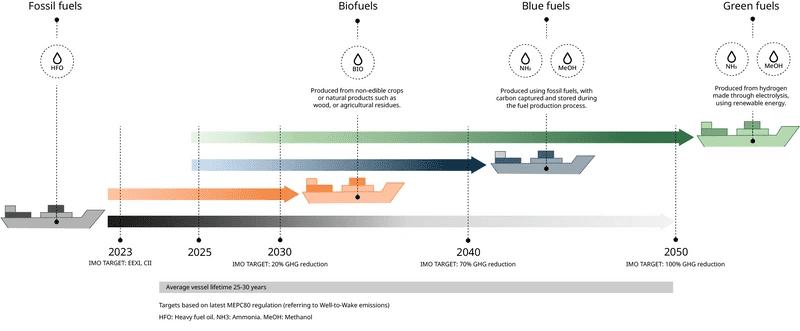A new report by Wärtsilä suggests that sustainable shipping fuels could become cost-competitive with fossil fuels by 2035, with the help of decisive emissions policies like carbon taxes and emissions limits. The report predicts that the EU Emissions Trading Scheme and FuelEU Maritime Initiative will cause the cost of using fossil fuels to more than double by 2030, narrowing the price gap between fossil fuels and sustainable options. Existing decarbonisation measures could reduce emissions by up to 27%, but the remaining 73% will require the widespread adoption of sustainable fuels, which will necessitate radical action to scale production.
The report highlights the challenges facing the industry, such as the reluctance of ship owners to invest in expensive and limited sustainable fuels, as well as the difficulty for suppliers to scale production without clear demand signals. To accelerate the adoption of sustainable fuels, the report calls for decisive policy implementation, industry collaboration, and individual operator action. This includes setting science-based targets for phasing out fossil fuels, establishing global carbon pricing standards, and pooling demand through sector-wide procurement agreements.
Wärtsilä’s report emphasizes the importance of investing in fuel flexibility to avoid the risk of stranded assets, citing the company’s development of multiple fuel options including ammonia fuel. The report provides a roadmap for achieving full decarbonization in the shipping industry by mid-century, outlining steps for policymakers, industry stakeholders, and individual operators to work together to scale sustainable fuels more rapidly and affordably. By taking action now, the industry can reduce emissions, save costs, and transition towards a more sustainable future.







